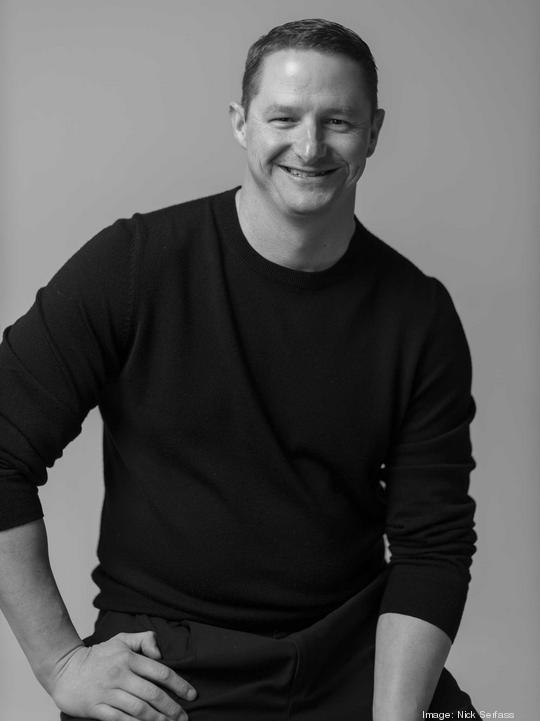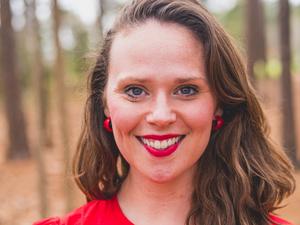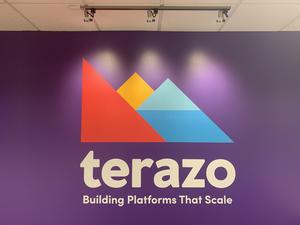
Nick Serfass took the top job at the Richmond tech association rvatech in 2019. He sat down with Richmond Inno recently and talked about his background, the role the organization plays in building up the startup ecosystem and his feelings about the current state of the local tech sector.
Below is the conversation edited for clarity.
Can you start by telling me a little about your background and how you came to be CEO of rvatech? My background is in architecture, so building architecture and design. And I kind of transitioned into the nonprofit association world back in 2008. I started out working for a couple of startups, working for another architecture association, moved into a second one in 2014 and then in 2019 had the opportunity to interview and take the helm at rvatach. There are a lot of similarities between architecture and tech, and a lot of the programing and the budget and the style of the organization was very similar from where I came from, so it was a good fit.
Now what is the history of rvatech? It was started in 1991, primarily as an opportunity for people to do business development among one another, create connections and create a community. It's since grown into the programing powerhouse it is today. I always tell people that we are not everything for everyone, but we have something for everyone. We cross a lot of different verticals in tech in terms of our conferences. We have five different conferences currently and a lot of different networking things from a gala awards event to a golf tournament to happy hours. And then a bunch of serial programing as well. We do a breakfast series, a couple of podcasts. We do some media. We have a policy agenda, things like that. So, we're really across the board as a builder of the tech community.
Where do you see the tech scene and startup scene in Richmond right now? It's thriving and surging both at the same time. It's been healthy and robust ever since I came on board back in 2019. I think it's been that way for a while, driven by some of the larger companies, the Capital Ones, CarMax, Altria, Dominion, but really over the last two years we've seen a lot of small businesses start up, and medium and large businesses move into town. We've seen CoStar take on a big role in our ecosystem, and it just continues to grow every year. And the last two years we've seen record membership and some of that is through recruitment, but some of it's just new members, kind of new companies starting up, moving to town and just growing the ecosystem.
That kind of goes into my next question a little bit. Do you see a startup ecosystem developing in Richmond? I mean, I know it's been talked about, but it seems like the pieces are kind of falling into place. There's a variety of programs and organizations that are helping to build that ecosystem. A place like Startup Virginia is kind of the association for startups. They do a variety of startup-based programing. They run a mentor program, they do events, they do meet, so they do legal help, things like that.
At the same time, you have ex-employees of larger companies like Capital One and CarMax that are starting companies, right? Yeah, 100%. So, you're seeing we have a thriving community of practitioners, which, as you know, have over the last three to five years considered their own business concepts and services and started their own companies. And that starts from being nurtured in a place like CarMax or Capital One or Altria. These companies bring talent to town and then once the talent is here, they come up with their own opportunities.
We've been profiling some of the Inc. 5000 companies in Richmond the last few weeks, and a bunch of them are tech or tech-enabled. Do you think the number of companies on the list demonstrates the huge growth phase in tech and tech startups in the region? Yeah, and that's driven by the phrase that everybody's a tech company these days. You know even if you're selling a widget, you have a backend of some nature that needs to be tech-enabled. You probably have some sort of cyber element that needs to keep your company protected. Do you want to process data? Do you want to integrate machine learning? How are you using that data and analytics to power your business? Between software itself, data analytics and cybersecurity, every company is kind of merging into that space in some way.
What do you think the labor challenges are right now in the tech industry locally? There's a labor shortage across the board in all verticals, really. But we're seeing that nationwide as well. I don't think it's just Richmond. We do a lot of cross comparisons with other tech councils, and the current tech talent shortage is really being felt across the board. It's something we're all working to address. But at the same time, our sector is robust and has a lot of different opportunities. We just need to figure out how to fill that.
And how do you improve the pipeline for those types of positions? A lot of it has to do with higher education or alternatives to higher education. So, that could be apprenticeship programs. That could be improving internships and the amount of quality of internships. And thinking creatively around how to build talent outside of higher education because higher education only has so much capacity.
Do you see access to capital being easier than it was 10 years ago for Central Virginia startups? Or is it still a real challenge to get access to capital? I can't really comment on that one just because I'm not in the space as intimately.
Are there any areas where you kind of see the tech community in Richmond carving out a niche? Fintech or finance tech has been huge for a long time with Capital One. Certainly, there are banks in the area. Bank of America is here. Atlantic Union is here. There's also a heavy insurance sector. There's an energy tech sector, obviously driven by Dominion. I'd say another niche is product development. We've often been saying over the last few years that Richmond is a product town, meaning that we have a strong source of creatives here locally and whether you're building an app, whether you're building a website, whether you're building a particular piece of software, Richmond really is a product town. So, we have the capabilities to create really creative products.
Are you worried about any of the larger macroeconomic issues impacting tech like interest rates going up? Sure. I mean, the thing about tech is that it's capital intensive. So, to power it, you need you need capital. And as access to capital gets shrunk or tightened, it could lead to smaller investment areas. But at the same time, tech grows businesses and can scale businesses and expand revenues. So, it's kind of a Catch 22. You need to spend money to make money. And, you know, as money gets tighter, it's harder to do that. So, you could say, yeah, there's definitely a concern without a doubt that access to capital could create some challenges. But at the same time, tech drives business and business growth. So, it would be a hard thing to cut into, to pull back on, if you're really trying to grow your business.
As we wrap up, is there anything about rvatech in general or the Richmond tech scene that you want to add? I would just say that we are really trying to create a thriving tech community that covers as many sectors and verticals within the tech ecosystem as possible. And we're trying to build that community more and more every year.



